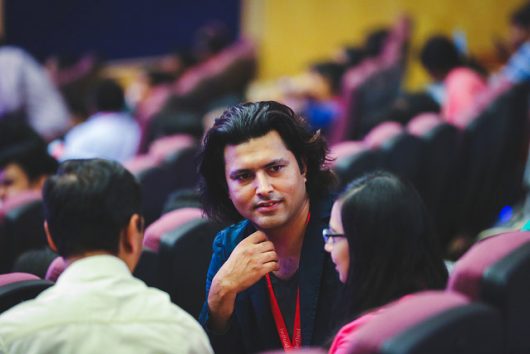Global Poverty TEDx Talk Challenges Perceptions About Aid and Trade

In April, Anna Hagemann Rise gave a global poverty TEDx talk at the Stockholm School of Economics (TEDxSSE) entitled “Why we need a rethink in the fight against global poverty.” Her lecture focused on “trade versus aid” and the complexity of sustainably solving global poverty.
Rise begins her talk by posing a simple question about global poverty relief: “Who’s not in favor?” No hands go up. Of course no one is going to say they are against helping the impoverished. However, this speaker has a unique challenge for her audience.
Rise has a diverse academic background in international politics, communication and peace and conflict resolution. She has worked for the UN in various positions both in the U. S. and in Denmark, her home country. Her recent work has included communications, media, marketing and field work with the Swedish fruit smoothie company Froosh. She is currently its Group Communication & Public Affairs Director.
Rise admitted in her talk that her thinking about aid was initially “institutionalized” by her education. She perceived that trading with developing countries was exploitation, and that giving aid was always a helpful poverty solution.
As she traveled with Froosh and worked on the farms in developing countries where the company buys its produce, Rise saw the value in supporting farmers through trade. She realized that buying from developing countries was a sustainable way to fight poverty. In fact, she believes that this is the best way to fight global poverty.
In her global poverty TEDx talk, Rise passionately recounted how influential the fruit farms that she visits are in their own communities. For example, Guatemalan fruit farms invest in schools, local businesses and even housing in order to give back to their communities. Rise saw the value in the long-term investments that these farms were making to develop their communities.
Rise believes that the key to solving poverty is this type of long-term thinking that creates more sustainable solutions. According to her, the private and public sectors must work together to accomplish this. As she expressed in her talk and an interview, sustainable solutions require involvement and cooperation from both sectors.
Unfortunately, a vast number of trade barriers and bureaucratic procedures still exist that impair developing countries from trading with the rest of the world. The media can also negatively impact trade in developing countries since popular sentiments are not always open to some of these nations.
As Rise put it in her talk, “We need to be open and honest about how the conditions and how the reality is for these people.” For example, aid can sometimes harm developing nations despite good intentions. Leaders can misuse aid money and NGOs sometimes fail to provide long-term solutions for developing communities.
For this reason, Rise encouraged her audience to think critically about where aid money goes and how it works in developing communities. Educated consumerism is a “trendy” way to support good causes. But in her opinion, labels are simply advertising techniques for corporations to connect with conscious consumers.
So although buying from developing countries is good, it is important to keep questioning and challenging the system. “All aid is not bad. Of course. All trade is not good. No, of course not. All labels are not bad, either.”
Since global poverty is not a cut-and-dry issue, Rise’s advice to challenge the simple answers proves valuable for everyone concerned with helping to solve world poverty. “The world is not black and white. It’s actually very colorful.”
Rise’s global poverty TEDx talk encourages people to use the knowledge and inquisitiveness of this colorful world to improve conditions for all humans everywhere.
“Who’s not in favor?”
–Addie Pazzynski
Photo: Flickr
